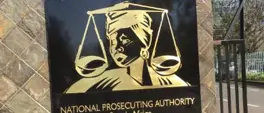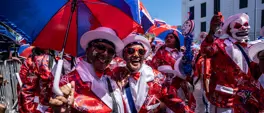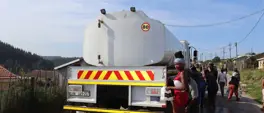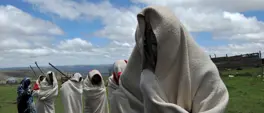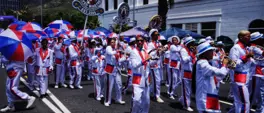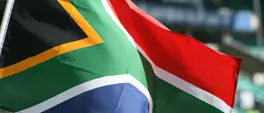MONDE NDLOVU: Reflecting on the state of freedom in South Africa today
Monde Ndlovu
27 April 2022 | 10:00The miracle moment of 1994 was not in itself a complete removal of the impediments of freedom, but rather a bold statement of what is possible beyond the political transition, writes Monde Ndlovu.
In the words of Gloria Gaither: “And even life begins because a baby fights for freedom and songs we love to sing have freedom’s theme. Some have walked through fire and flood to find a place of freedom and some faced hell itself for freedom’s dream.”
These words echo the sentiments of all Africans across the diaspora, the ethos of freedom beats with every heartbeat. The quest for freedom lies in every fiber of life, and in every thought of humanity that seeks a better future for its children. The African child has longed for the day of freedom and an unhindered expression of self, through the philosophy of the collective known as Ubuntu. In reflecting on the state of freedom in South Africa today, we must endeavor to distill the aspirations of the people and plainly articulate the tenants of freedom.
The question remains, but what is freedom? Freedom is a state of mind, an ability to reach the intersection of self-actualisation and self-sacrifice. To give to yourself in reaching new heights of thought, and to give of yourself to just causes that will enable the unlocking of chains of the people. There can be no freedom without sacrifice, neither can there be development without personal transformation.
The miracle moment of 1994 was not in itself a complete removal of the impediments of freedom, but rather a bold statement of what is possible beyond the political transition. For too long the clear agenda of economic freedom has played second fiddle, lacking life and drive. The cosmetic policy shifts have, to some degree, created opportunities for black people but a fundamental redefinition of the economy has not taken root yet.
The mental chains have yet to be completely removed, hence the need to deepen black consciousness among the people, that we have the responsibility to free our minds. The rampant corruption in both the public and private sector is testament of the mental chains that continue to bind our leaders, both black and white. Black people thought that freedom means to acquire as much as possible, even at the expense of the masses. White people thought freedom means building a school and a clinic in response to the call for transformation. Both parties missed the true tenants of freedom, in that, both must work tirelessly to redefine the socio-economic landscape and create a country that has never existed before, where black people will break away from poverty, inequality and the unemployment that exists.
It must be clearly stated that the work of true freedom in South Africa is to first acknowledge that economic power is central as an anchor for freedom. Secondly, the productive assets of the economy must be in the hands of black people. Thirdly, controlling management in the economy leads to turning the wheel of transformation, for management is the heart of the economic system. Fourthly, ownership of the economy needs formidable black management control for ownership to be sustainable.
Transformation must begin at a personal level, for it to be sustainable in the context of freedom. Transformation at a societal level begins where leaders who are truly free learn to sacrifice for the masses. Transformation at an economic level begins where policies and laws reflect our total aspirations as a people, anchored on the clear understanding of freedom.
Monde Ndlovu is head of advocacy and thought-leadership at the Black Management Forum.
Get the whole picture 💡
Take a look at the topic timeline for all related articles.
